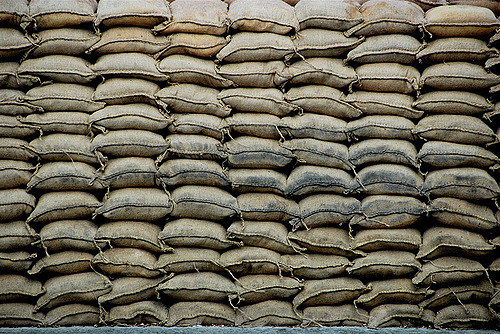“Berlin Notebook: Where Are the Refugees?” is a straightforward journal transcription of my experiences in Berlin during October 2015, a time when the influx of refugees in Germany and the rest of Europe was peaking. I have tried to be as faithful as possible in my reporting of interviews. I have not tried to verify the facts that people presented (when they told them to me); I have tried, rather, to convey the experience of talking with them, what it was like to be there, and to listen, to ask. The form of the interviews may seem to move like the “streaming” metaphor one finds everywhere in use to describe the movement of people across national borders.
This journal transcript will appear here in daily installments. It begins each day with the new installment; to read from the beginning, go to the “Berlin Notebook” archive and scroll down to find the first entry. An ebook version of the complete transcript will be made available soon.
—JW
Friday, 9 October
I ride my bike down Friedrichstrasse to the Checkpoint Charlie area to find the United Nations High Commission on Refugees. Originally established by the League of Nations, it was reiterated by the United Nations after World War II, with the idea that it would work hard for a few years to solve the crisis of European refugees after the war. But the need for it during that period was renewed when the Soviets crushed the Hungarian Revolution in 1956. Since then, it’s never been out of commission.
I realize quickly after parking my bike and wandering around a courtyard area on Zimmerstrasse that I’ll have to sneak in the building with some other visitors. I loiter a while, and join a small group that gets buzzed in. Luckily, I’ve donned a button down shirt and sport jacket — my official costume — and look like I might have a reason to walk in with them. But I don’t know what floor the office is on. I walk up five stories and find it. Door locked. On either side of the door is a thick glass wall. I peer in. Standing flags and open office doors. A few attempts at ringing the bell with no results. I wait outside the door for 15 minutes, staring intently through the glass. I can’t see into any of the office spaces, even with the doors open, but I can see the sun coming in from the exterior windows, sending shafts of light through the rooms and out the thresholds. I study the dust motes to see if I can make out any swirling disturbances that would suggest a moving body inside. Nothing. Still as a tomb.
Read Joshua Weiner’s essay on the modern refugee novel, Transit, by Anna Seghers at B O D Y.


